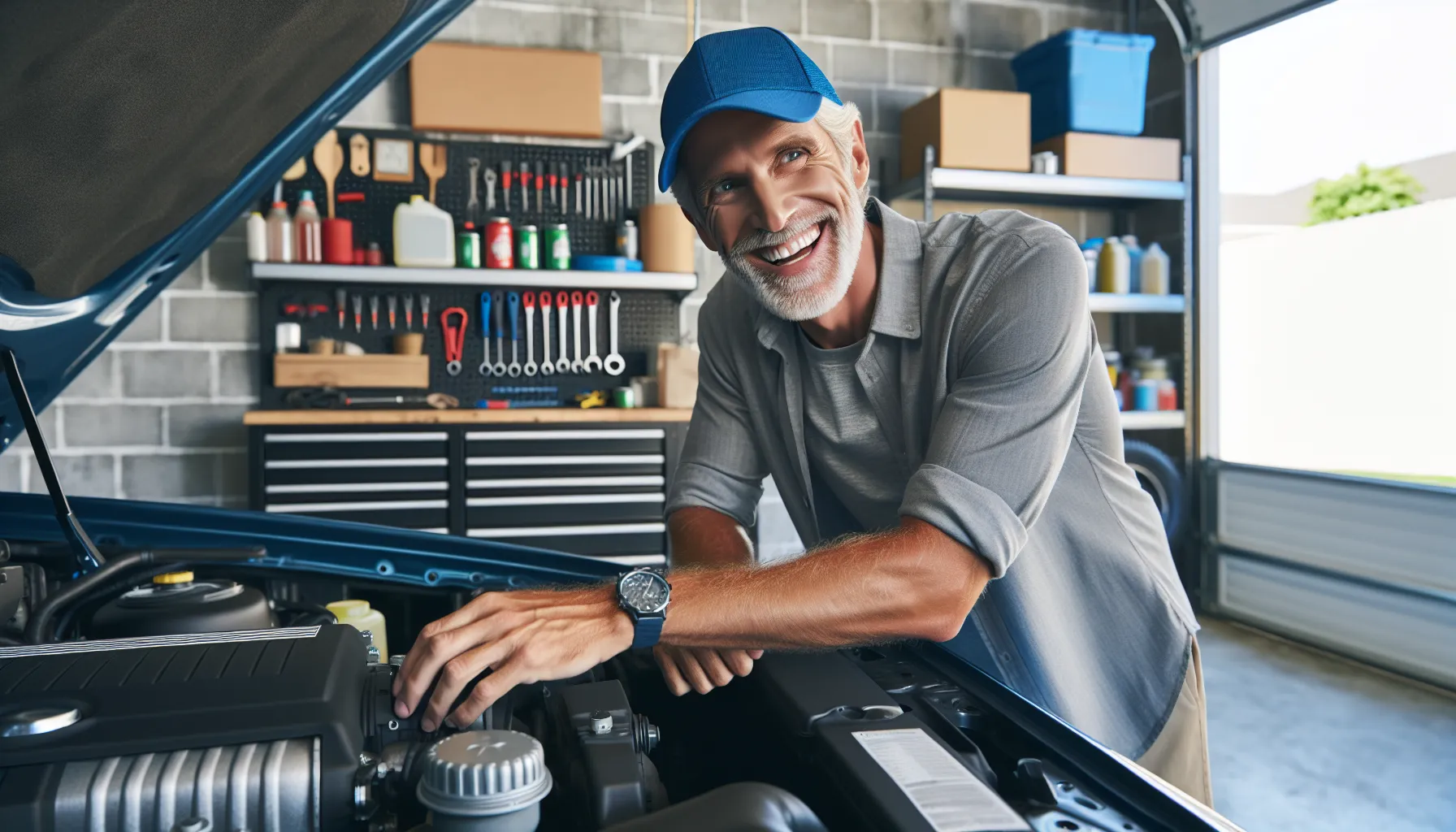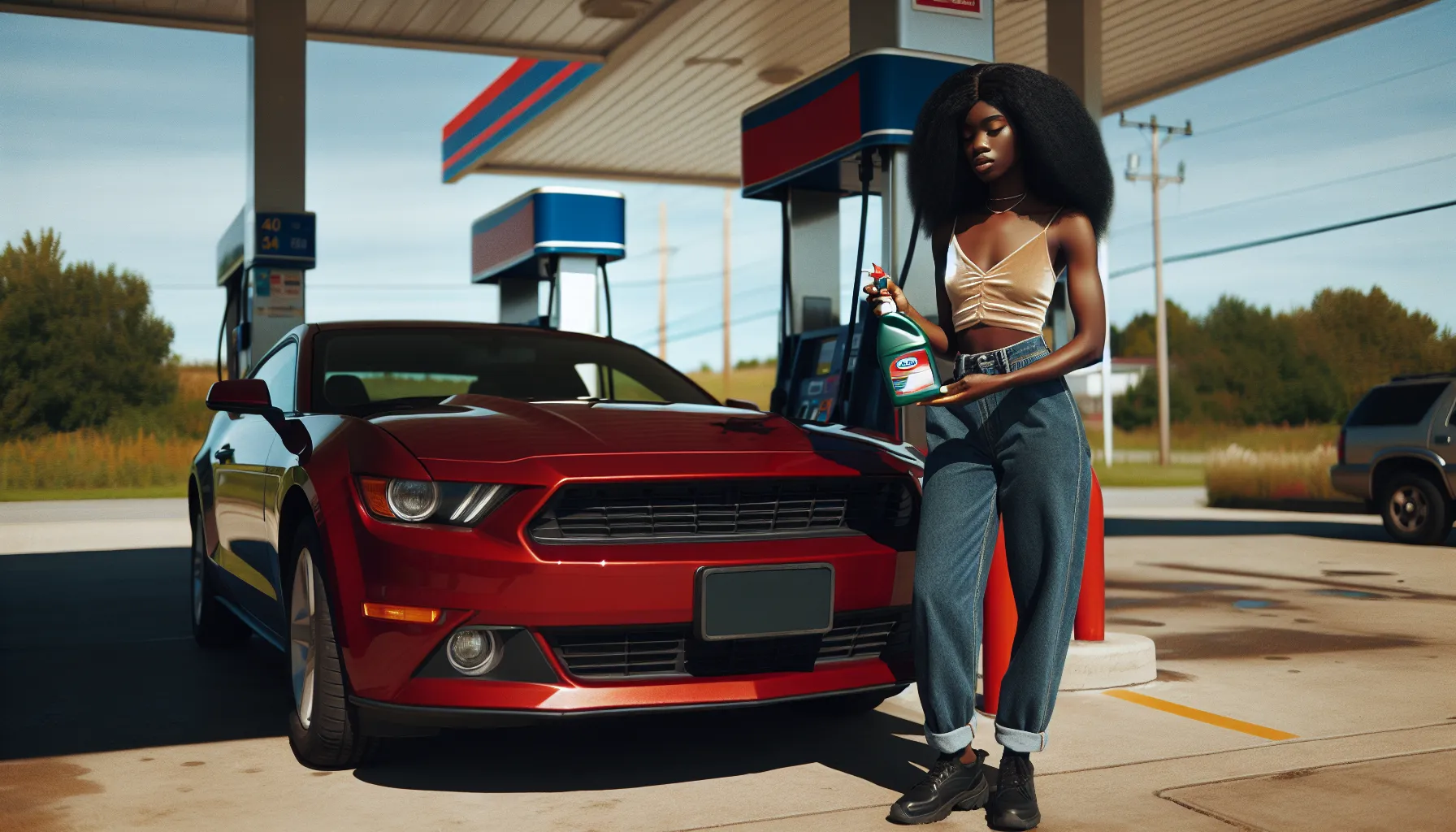20 Proven Tips on How to Save Money on Gas and Cut Fuel Costs
Key Takeaways
- Adopt fuel-efficient driving habits, such as maintaining a steady speed, avoiding idling, and using cruise control, to save on gas consumption.
- Regular vehicle maintenance, including tire pressure checks, oil changes, and replacing air filters, improves fuel efficiency and reduces long-term costs.
- Use the fuel type recommended by your car’s manufacturer and consider occasional additives to enhance engine performance and mileage.
- Plan trips smarter by combining errands, avoiding traffic, and utilizing gas-saving navigation apps to minimize unnecessary driving and fuel use.
- Explore alternative transportation options like carpooling, public transit, biking, or walking to significantly cut back on fuel expenses.
- Lower gas expenses benefit your budget, reduce environmental impact, and help you achieve greater financial stability.
Gas prices always seem to creep up when we least expect it, don’t they? I’ve definitely felt the pinch at the pump, and I know I’m not alone. Whether you’re commuting daily or planning a road trip, those fill-ups can really add up. But saving on gas doesn’t have to mean driving less or sacrificing convenience.
Over the years, I’ve picked up some simple tricks that make a big difference. From smarter driving habits to finding the best deals, there are plenty of ways to keep more cash in your pocket. If you’re ready to cut down on fuel costs without breaking a sweat, let’s dive into some easy, practical tips that’ll help you save every time you hit the road.
Importance Of Saving Money On Gas
Cutting gas expenses impacts more than just personal finances; it supports long-term budgeting goals. Regular savings on gas create more room in the budget for other needs like groceries or utilities.
Lowering fuel costs also reduces financial stress from fluctuating gas prices. Consistency in spending protects against unexpected price jumps, keeping monthly budgets stable.
Fuel conservation benefits the environment by decreasing demand for fossil fuels. Lower consumption translates to reduced greenhouse gas emissions, aligning personal actions with broader environmental goals.
Efficient fuel use prolongs vehicle lifespan. Reduced wear on the engine, caused by smarter driving habits, minimizes maintenance costs over time.
Tips For Driving More Efficiently

Driving efficiently saves gas and helps manage costs over time. Small adjustments in driving habits can make a significant difference.
Maintain A Steady Speed
Keeping a consistent speed uses fuel more effectively. Frequent speed changes require more energy from the engine, leading to higher consumption. I try to anticipate traffic patterns and maintain a steady pace, especially in free-flowing conditions.
Avoid Idling
Idling wastes fuel without getting me anywhere. Turning off the engine when parked or waiting for more than a minute reduces unnecessary fuel usage. Many modern vehicles even have start-stop systems that help with this automatically.
Accelerate And Brake Smoothly
Quick acceleration and abrupt braking burn extra gas. I aim to gently press the accelerator and brake pedals, giving the vehicle time to adjust and reducing strain on the engine. This approach improves fuel efficiency and reduces wear on the brakes.
Use Cruise Control On Highways
Cruise control helps maintain a stable speed on flat highways. By avoiding constant adjustments, I ensure the car operates at its optimal efficiency. This also reduces the temptation to unintentionally speed, which can burn more fuel.
Vehicle Maintenance For Gas Savings

Keeping your vehicle in good condition plays a key role in improving fuel efficiency. Small maintenance efforts can lead to significant gas savings over time.
Regular Oil Changes
Changing oil as recommended by the manufacturer enhances engine efficiency. Old or dirty oil increases engine friction, causing it to work harder and consume more gas. I always check my owner’s manual for the correct oil type and interval, as using the wrong type can also reduce fuel economy. Synthetic oil, for instance, may improve efficiency in some vehicles.
Check Tire Pressure
Maintaining proper tire pressure improves gas mileage. Under-inflated tires increase rolling resistance, making the engine work harder and using more fuel. I use a tire pressure gauge to compare my tire PSI to the recommended levels printed inside the driver’s door or in the owner’s manual. Checking pressure monthly helps avoid losing efficiency due to gradual air loss.
Replace Air Filters
Replacing clogged air filters improves airflow to the engine, helping it use fuel more effectively. Dirty filters reduce combustion efficiency, especially in older vehicles without advanced fuel-injection systems. I inspect my air filter every 12,000-15,000 miles or more frequently in dusty environments. A clean filter boosts performance and saves gas effortlessly.
Choosing The Right Fuel

Using the right fuel keeps costs down and ensures your vehicle runs efficiently. Fuel choice impacts both performance and long-term expenses.
Premium Vs Regular Gas
Not every car needs premium gas. Many vehicles run efficiently on regular gas as long as they meet the manufacturer’s octane requirements. Premium gas, which has a higher octane level, is designed for engines requiring high compression or turbocharged systems. Unless your car manual specifies premium fuel, using regular gas typically offers the same performance without the added expense.
I’ve found that sticking to the recommended fuel type saves money long-term without harming the engine. Checking the owner’s manual helps avoid paying extra for premium gas unnecessarily.
Benefits Of Fuel Additives
Some fuel additives can improve engine performance and increase efficiency. Additives clean fuel injectors, reduce carbon buildup, and optimize combustion, which may boost mileage slightly. Look for products approved by your car’s manufacturer or consider top-tier gas brands, which include additives to maintain engine health.
I’ve noticed a smoother drive and fewer maintenance issues by occasionally using additives with high-mileage vehicles. They’re particularly helpful if you’ve recently experienced rough idling or reduced performance.
Planning Smarter Trips
Grouping trips and avoiding unnecessary driving can significantly reduce gas expenses. By making small adjustments to travel routines, it’s easy to cut costs without sacrificing convenience.
Combine Errands Into One Trip
Combining errands into a single trip minimizes distance traveled and avoids extra stops. For example, I plan grocery shopping, pharmacy visits, and bank errands together if they’re near each other. This strategy reduces engine warm-up cycles, improving fuel efficiency since engines consume less gas when fully warmed up.
Avoid Traffic And Congestion
Getting stuck in traffic wastes gas through idling and stop-and-go driving. I avoid peak traffic hours whenever possible and take alternate routes to bypass known congestion areas. Local traffic updates and live maps often help in identifying delays beforehand.
Use Gas-Saving Navigation Apps
Navigation apps designed for fuel efficiency help plan the shortest or least congested routes. Apps like Waze and Google Maps highlight traffic conditions and suggest alternative roads that save both time and gas. I also use features that locate gas stations with the lowest prices along my route, adding extra savings.
Alternative Transportation Options
Exploring alternative transportation methods can help save significant money on gas while offering environmental benefits. I’ve found several practical solutions that reduce reliance on driving alone.
Carpooling
Sharing rides with others is a cost-effective way to cut gas expenses. I often set up carpools with coworkers or friends heading to similar destinations. By splitting gas costs equally, I save money and reduce wear on my vehicle. Apps like BlaBlaCar and carpooling features in Waze make finding ride-matching opportunities even easier.
Public Transportation
Using buses, subways, or trains can drastically lower gas consumption. I rely on public transit for commuting when it’s available, especially for regular routes like work or downtown trips. Single fares generally cost much less than daily fuel expenses. Many cities also offer discounted monthly passes, allowing me to plan my transportation budget more effectively.
Biking or Walking
Biking or walking is completely gas-free and an excellent way to save money while staying active. For short trips under a few miles, I prefer to walk or use my bike instead of driving. It eliminates fuel costs and parking fees, and I’ve found it surprisingly quick for reaching local shops or parks. Additionally, investing in a good bike is far cheaper than long-term fuel and vehicle maintenance costs.
Conclusion
Saving money on gas doesn’t have to be complicated or time-consuming. Small changes in how we drive, maintain our vehicles, and plan our trips can make a big difference in both our wallets and the environment. It’s all about being mindful and making smarter choices that fit into our daily routines.
By taking a little time to implement these tips, we can ease the burden of rising gas prices and free up funds for other priorities. Plus, knowing we’re reducing our environmental impact is a great bonus. Every step counts, and it’s worth the effort!
Frequently Asked Questions
Why is it important to save money on gas?
Saving money on gas helps reduce financial stress caused by fluctuating fuel prices. It frees up funds for other essentials like groceries and utilities, enabling better long-term budgeting. Additionally, saving on gas reduces environmental impact and extends your vehicle’s lifespan by minimizing maintenance issues.
What are some driving habits that improve fuel efficiency?
To improve fuel efficiency, maintain a steady speed, avoid idling, accelerate and brake smoothly, and use cruise control on highways. These habits help optimize your car’s fuel consumption and reduce wear and tear on the vehicle.
How does vehicle maintenance help reduce gas costs?
Regular maintenance, such as oil changes, tire pressure checks, and replacing clogged air filters, ensures your car runs efficiently. These simple steps can improve gas mileage and lower overall fuel costs.
Do I need to use premium gas for my car?
Not all cars require premium gas. Check your owner’s manual to see if your vehicle runs efficiently on regular gas that meets the manufacturer’s octane requirements. Avoid spending extra on premium gas if it’s unnecessary.
What are fuel additives, and do they help save gas?
Fuel additives clean fuel injectors and enhance engine performance by optimizing combustion. They can improve gas mileage and reduce maintenance issues, especially for high-mileage vehicles. Use only approved additives for the best results.
How can trip planning reduce gas expenses?
Combine errands into one trip to minimize driving distance and reduce engine warm-up cycles. Use navigation apps like Waze or Google Maps to find the shortest routes and avoid traffic, saving gas and lowering overall costs.
What are the benefits of carpooling for saving gas?
Carpooling allows you to share rides, splitting fuel costs among passengers. This significantly reduces individual gas expenses while offering an eco-friendly way to travel. Apps like BlaBlaCar or Waze can help you find carpooling options.
What are alternatives to driving for short trips?
Biking or walking for short distances is a gas-free way to save money while promoting physical activity. It’s an eco-friendly and economical choice for errands close to home.
Is public transportation a good replacement for driving?
Yes, public transportation, like buses and trains, drastically reduces your need for gas. Many cities offer affordable monthly passes, making it a cost-effective and environmentally friendly travel option.
How can gas-saving apps help reduce fuel costs?
Gas-saving apps like Waze and Google Maps help you find the lowest fuel prices and the most efficient routes, avoiding traffic or unnecessary stops. These tools make it easier to save both time and money.

